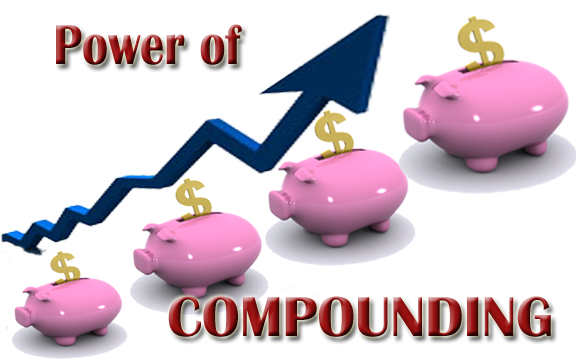
While it can be easy to see how money can compound given enough time, as its just fairly simple mathematics, admittedly with some assumptions, it can be more difficult to see and get excited about the impact of consistently and habit, and the compounding effect it can have on your life.
If you were to take even $100/week and invest it in the stock market, after 10 years you would have about $80000, after 20 years $252000 and after 30 years $640000. This is both due to the weekly investing and the compounding. This is easy in a sense because you can do it automatically, and while the growth is slow, it is easy to measure.
When it comes to other aspects of life, such as learning a skill, your career, your health, relationships, hobbies, contributions to society and overall happiness, measuring becomes much more difficult. However, I still believe it can be measured. And if it can be measured, it can be improved. Just like the stock market, these things don't go up in a straight line, and you may have setbacks, and your knowledge may plateau, but over the course of many months and years, things should generally improve. Just like with the stock market, you must make regular deposits, investments of time to grow the other aspects of your life, or they just happen to you and you will make little progress.
If you want to improve your health, for instance, you don't start by running a marathon and then consider health accomplished and never run again. Starting off too strong is a sure way to get burnt out. Instead, realize that you have 168 hours a week and 52 weeks a year. If you commit to just half an hour a day to anything, you will have committed 180 hours a year, or nearly 5 work weeks to it. That's enough to run the distance of 40 marathons, even if you start off at a really slow pace. It's enough time to read 20 books, or start and maintain a blog, or write a short book, or learn and improve a number of skills.
The key is to use the power of habit, and public accountability to become better at something that's hard for you normally. Often, just like investment, it's best to pay yourself first. You may spend a 8-10 hours a day at work, after which you may find it difficult to focus on what you should be doing to improve yourself in other ways. Perhaps if you find it hard to exercise, you should get up each morning and spend the first number of minutes walking, running or doing aerobic exercise. It does not have to be long, it doesn't have to be intense, but given enough time, you will become better at it. Consistency is key here, and his better than intensity.
So how can you force yourself to be consistent?
1) Set aside time that's guaranteed to be yours. This may be in the morning before work, late at night before bed, at lunch, or just after work, whatever time you can guarantee you won't be interrupted in.
2) find a time to make up if you do get interrupted, either internally or externally
3) create a visual reminder, preferably where you and others can see it. Putting an X through each day in a calendar is a good any to do it. This works even if you don't do it every day. Even if your goal it to be done 3 times a week, you should try to pick your days, and have backup days you can fall back on.
4) Calculate and anticipate the potential benefits 1, 5, 10, 20, 30 years down the road, but don't dwell on the long term goal, but find a way to do each day to get closer to the prize. Focus on the process, not the goal. Even if you just spend time each day without seemingly discrete progress, you will move towards your goals
5) measure your progress, but not too frequently. If the goal is to lose weight, don't jump on the scale every day, but every two weeks at most. Your weight fluctuates daily, and you won't be able to measure daily progress. If you want to measure your ability at a particular skill or success in a business, the measuring interval may be a month, or quarterly. All you need is a set of metrics you can compare from interval to interval. While it seems like this is a long time to see progress, in retrospect you will be amazed at all you have accomplished by your consistency.

 Posted by Jonathan Weyermann on December 6, 2019 at 12:12 AM
Posted by Jonathan Weyermann on December 6, 2019 at 12:12 AM




0 Comments
Add Comment